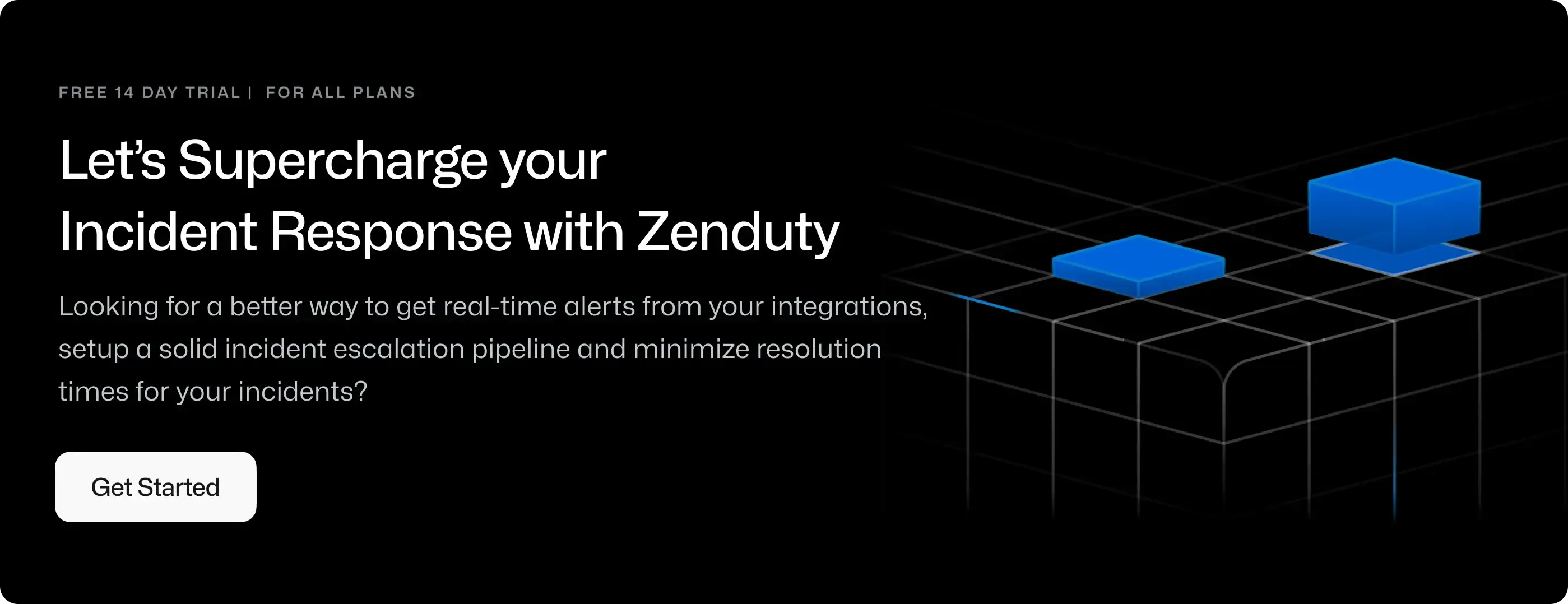API Integration Guide
Implement any application or service with Zenduty using the Webhook API Integration.
To integrate any Application's Webhook with Zenduty, complete the following steps:
In Zenduty:
- To add a new API integration, go to Teams on Zenduty and click on the team you want to add the integration to.
- Next, go to Services and click on the relevant Service.
- Go to Integrations and then Add New Integration. Give it a name and select the application API from the dropdown menu.
- Go to Configure under your integrations and copy the Integration key generated.
In your Application/Service:
- To create an alert from your application, send a post request to:
https://events.zenduty.com/api/events/<integration-key>/
- Here, the integration key that was copied earlier is to be used.
-
Add post parameters by following the table below :
Name Type Default Example Required message String None This becomes the incident title. Yes summary String None This is the incident summary. No alert_type String Info Choices - critical, acknowledged, resolved, error, warning, info. Yes suppressed Boolean False True or False No entity_id String None A unique id for the alert. If not provided, the Zenduty API will create one. No payload JSON None A JSON payload containing additional information about the alert. No urls Array None An array containing JSON schema of urls related to alerts. No
- In the headers, the Content type should be set to "application/json"
'Content-Type: application/json'- For a more detailed explanation of the fields, click here.
- Sample Payload
{
"alert_type": "info",
"message": "This is info alert",
"summary": "This is the incident summary",
"entity_id": 12345,
"payload": {
"status": "ACME Payments are failing",
"severity": "1",
"project": "kubeprod"
},
"urls": [
{
"link_url": "https://www.example.com/alerts/12345/",
"link_text": "Alert URL"
}
]
}
- For cURL requests:
curl -X POST https://events.zenduty.com/api/events/[integration-key]/ -H 'Content-Type: application/json' -d '{"alert_type":"critical", "message":"Some message", "summary":"some summary", "entity_id":"some_entity_id", "urls":[{"link_url": "https://www.example.com/alerts/1234/","link_text": "Alert URL"}]}'
